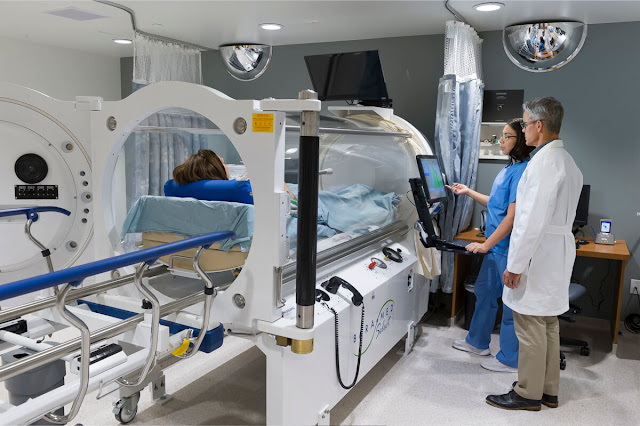Rise in Chronic Obstructive Pulmonary Disease (COPD) Cases Driving the Oxygen Therapy Market
The rise in chronic obstructive pulmonary disease (COPD) cases is a significant driving force behind the growth of the oxygen therapy market. COPD is a progressive respiratory condition characterized by chronic bronchitis and emphysema, leading to narrowed airways, difficulty breathing, and reduced lung function. As the prevalence of COPD continues to increase worldwide, the demand for oxygen therapy as a vital treatment modality has been on the rise.
Several factors contribute to the
escalating cases of COPD. First and foremost, smoking remains the leading cause
of COPD, accounting for a substantial portion of cases. Despite increased
awareness of the health risks associated with smoking, the habit persists,
leading to a continued influx of new COPD patients. Additionally, exposure to
environmental pollutants such as air pollution, chemical fumes, and dust can
also contribute to the development of COPD.
The aging population is another
crucial factor driving the rise in COPD cases. As individuals age, the risk of
developing COPD increases. Age-related changes in lung function, combined with
cumulative exposure to risk factors, make the elderly more susceptible to COPD.
With global populations experiencing longer lifespans, the prevalence of COPD
among the elderly is expected to rise, further fueling the demand for oxygen
therapy.
According to Coherent market Insights, the Increasing incidence of COPD
and lung disorders drive growth of the oxygen
therapy market across the globe.
The impact of COPD on
individuals' quality of life and healthcare systems cannot be understated. COPD
is a chronic condition that requires long-term management and often
necessitates the use of supplemental oxygen to alleviate symptoms and improve
patients' overall well-being. Oxygen therapy plays a vital role in COPD
management by delivering a controlled supply of oxygen to patients,
compensating for the impaired lung function and improving oxygenation.
Oxygen therapy provides several
benefits for COPD patients. It reduces breathlessness, increases exercise
tolerance, and enhances patients' ability to perform daily activities. By
ensuring adequate oxygen levels in the body, oxygen therapy can alleviate symptoms,
reduce the risk of complications, and improve patients' quality of life.
Moreover, oxygen therapy in COPD has been associated with reduced hospital
admissions and improved survival rates.
The increasing awareness of the
benefits of oxygen therapy in COPD management has led to a growing demand for
oxygen therapy devices and services. Manufacturers are developing innovative
oxygen delivery systems, such as portable oxygen concentrators and wearable
devices, to cater to the specific needs of COPD patients. These devices offer
greater mobility, convenience, and comfort, enabling COPD patients to maintain
an active lifestyle while receiving the necessary oxygen support.
The global
genomic cancer testing market has been experiencing significant growth,
with a valuation of US$ 16.15 billion in 2023 and is projected
to reach USD 45.92 billion by 2030, with a CAGR of 16.1%
during the forecast period of 2023-2030.
Healthcare providers and
policymakers are also recognizing the importance of oxygen therapy in COPD
care. Efforts are being made to improve access to oxygen therapy services,
ensure proper education and training for healthcare professionals, and
implement guidelines for optimal oxygen therapy utilization.
As the global burden of COPD
continues to rise, the oxygen therapy market is poised for significant growth.
The increasing prevalence of COPD, coupled with advancements in oxygen therapy
technology, presents opportunities for manufacturers, service providers, and
healthcare systems to meet the escalating demand and improve the lives of COPD
patients worldwide.




Comments
Post a Comment